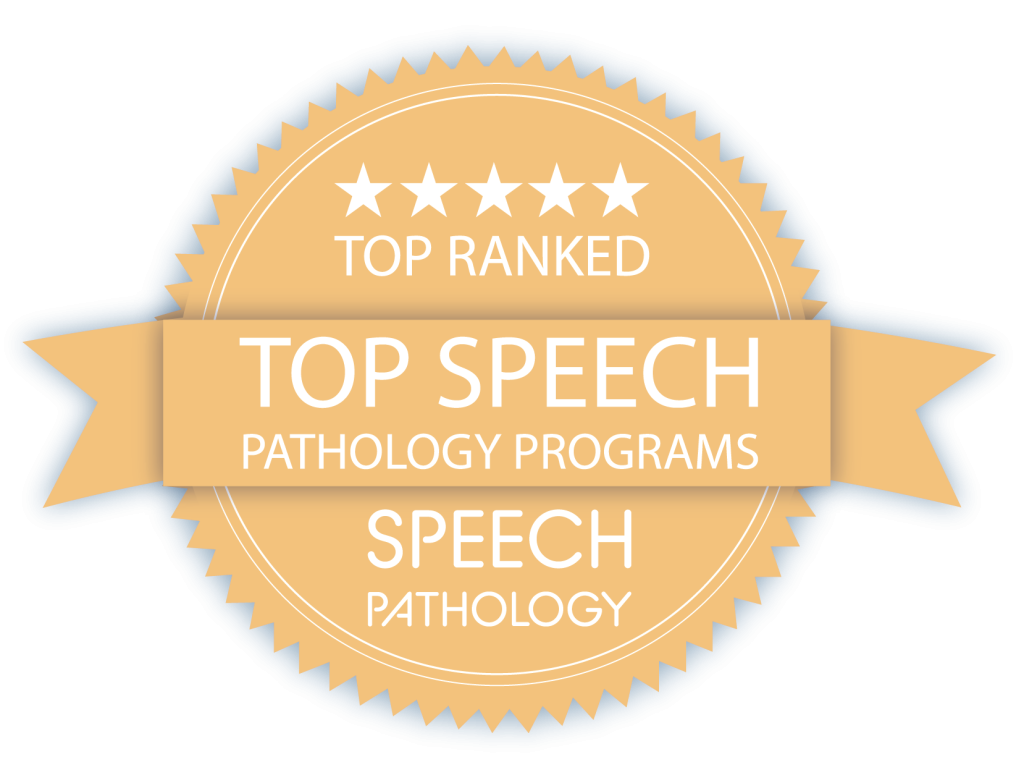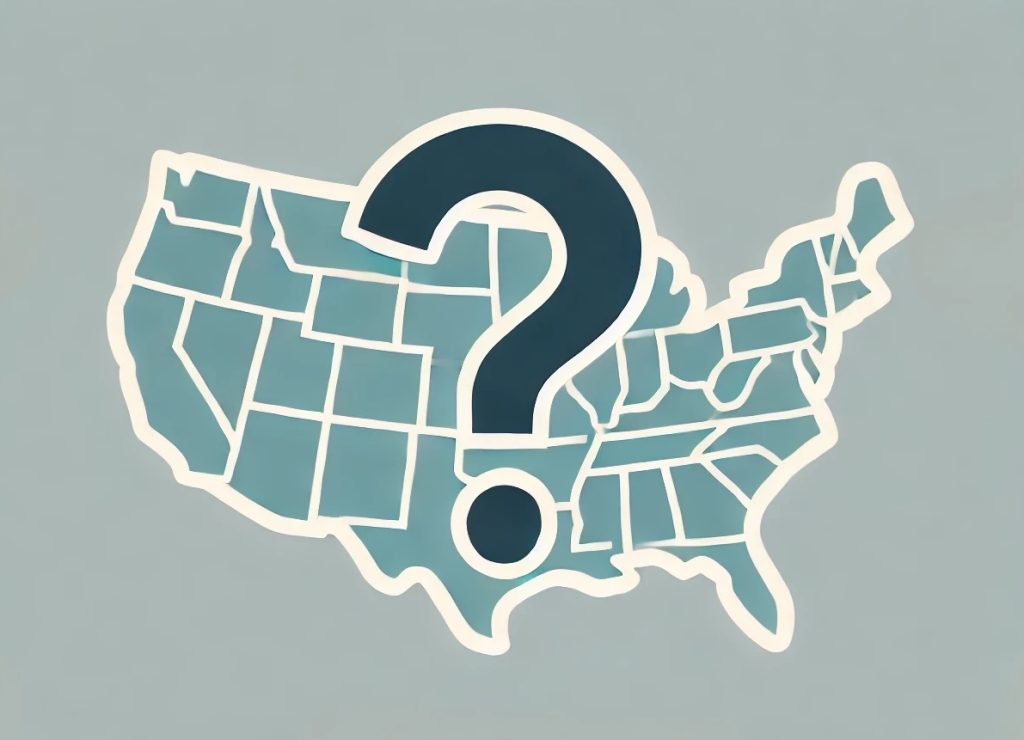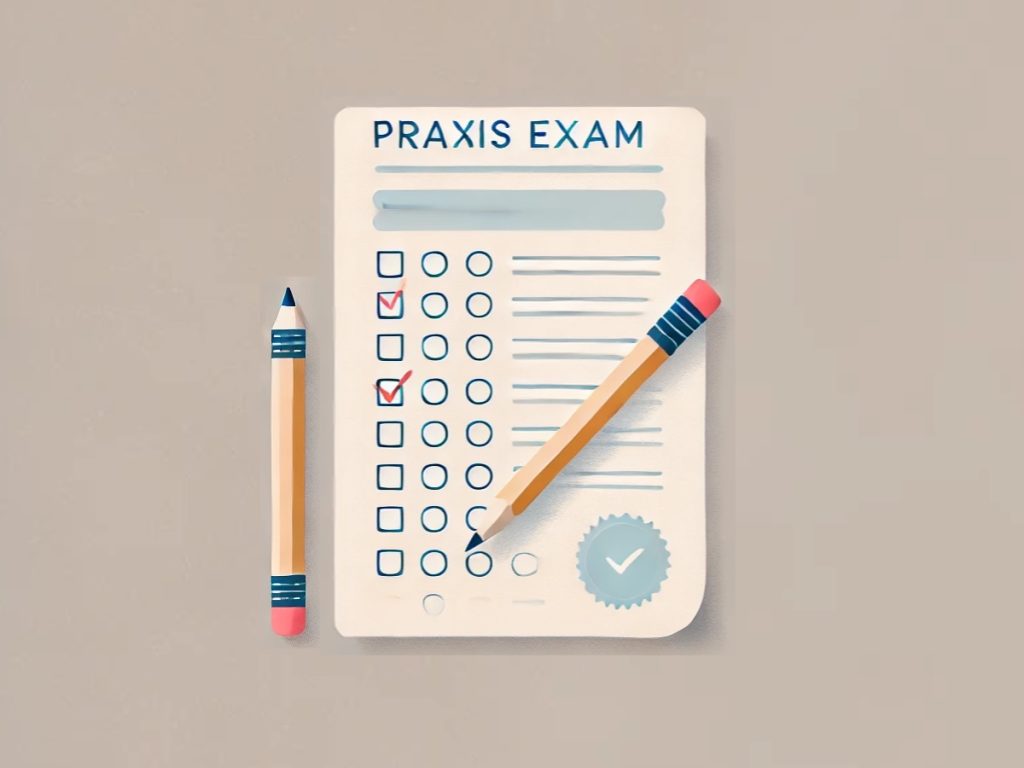Last Updated
April 16, 2025Written By
Benjamin Thompson, M.S., CCC‑SLPWisconsin presents an attractive environment for students who want to become speech pathologists. The state offers a strong job market with various positions available in schools and hospitals and clinics across Wisconsin. The salary range in this field matches the national average which exceeds $90,000 annually. The state offers an extensive selection of accredited SLP programs across its research institutions and smaller colleges which maintain excellent reputations for educational quality and career outcomes.
The state’s moderate cost of living and tight-knit professional network featuring active state associations and interstate licensure compact membership create special benefits for students who want academic and professional connections. Wisconsin stands as an ideal state for speech-language pathology degree pursuit because it offers strong career opportunities alongside quality academic programs and exclusive professional resources.

Looking for the best SLP programs in Wisconsin? peechpathology.org ranks top SLP degrees to help you choose the best one for you. Our list highlights programs known for quality, research, and clinical training. We focus on what matters to students and professionals in Wisconsin. Learn how we rank schools at speechpathology.org/rankings-methology.

Madison, WI - Public 4-Year - wisc.edu
Campus Based - Visit Website
The University of Wisconsin-Madison's Master of Science in Speech-Language Pathology is a CAA-accredited program that uniquely blends clinical training with doctoral-level research, preparing students for ASHA certification, Wisconsin state licensure, and teacher certification. With an application deadline of January 1, it integrates hands-on clinical experiences and research opportunities, enabling graduates to pursue diverse careers in healthcare and education. This program requires an entrance exam for admission, as typical for master's-level programs.
Campus Based - Visit Website
This two-year Master of Science in Speech-Language Pathology at the University of Wisconsin-Madison emphasizes clinical certification and supervised diagnostic and therapy experiences across diverse settings. Accredited by ASHA, it meets national standards and offers teacher certification and Wisconsin state licensure preparation, with an application deadline of January 15. The program requires an entrance exam for admission, focusing on developing comprehensive skills for working with children and adults in professional practice.
Campus Based - Visit Website
Focused on normal aspects of speech, language, and hearing, the Master of Science in Communication Sciences and Disorders at the University of Wisconsin-Madison provides robust clinical training through supervised experiences in various settings. This ASHA-accredited program prepares graduates for certification, state licensure, and teacher certification, with an application deadline of January 15. An entrance exam is required for admission, ensuring students gain the skills needed to become competent speech-language pathologists.
Campus Based - Visit Website
The Ph.D. Program at the University of Wisconsin-Madison, concentrating on speech, language, or hearing disorders, offers a mentor-based, individualized research curriculum with close faculty collaboration. Designed for those pursuing research careers, it emphasizes both normal and disordered aspects, with financial support and a January 1 application deadline. This doctorate program requires an entrance exam for admission, as is standard for advanced academic tracks.
Eau Claire, WI - Public 4-Year - uwec.edu
Online & Campus Based - Visit Website
The University of Wisconsin-Eau Claire's hybrid Master of Science in Communication Sciences and Disorders provides flexible pathways with both residential and online tracks. Students gain extensive clinical experience at over 90 sites, developing expertise in communication disorder evaluation and treatment. The CAA-accredited program includes a summer residency for online students and prepares graduates for licensure in all 50 states. With an average admitted GPA of 3.9, this program requires an entrance exam for admission. The Center for Communication Disorders offers state-of-the-art training facilities and post-baccalaureate course options.
Campus Based - Visit Website
UW-Eau Claire's campus-based Master of Science in Communication Sciences and Disorders delivers comprehensive training through a two-year residential or three-year online format. Accredited by ASHA, students access 16 therapy rooms and over 90 clinical sites for hands-on experience with diverse populations. The program emphasizes clinical assessment and professional practice, supporting licensure across all states. With an average admitted GPA of 3.9 and post-baccalaureate courses available, this program requires an entrance exam for admission. The curriculum prepares graduates for successful careers in healthcare and educational settings.
Online Learning - Visit Website
The University of Wisconsin-Eau Claire offers a fully online Master of Science in Communication Sciences and Disorders with flexible three-year completion. This ASHA-accredited program provides rigorous clinical training through 90+ affiliated sites and includes a summer residency requirement. Students develop expertise in speech-language pathology while meeting licensure requirements in all 50 states. With an average admitted GPA of 3.9 and post-baccalaureate course options, the program requires an entrance exam for admission. The online format maintains high-quality professional preparation through comprehensive curriculum and diverse clinical experiences.
River Falls, WI - Public 4-Year - uwrf.edu
Campus Based - Visit Website
University of Wisconsin-River Falls offers a campus-based Communication Sciences and Disorders bachelor's program training students in human communication's biological, neurological, and linguistic foundations. This undergraduate degree focuses on prevention, assessment, and intervention strategies for communication disorders, positioning graduates for master's studies in speech-language pathology. Addressing a national shortage, the program provides excellent career prospects in hospitals, schools, and rehabilitation centers. An ACT or SAT entrance exam is required for admission to this bachelor's level program, which features a scientifically rigorous curriculum.
Campus Based - Visit Website
With an Education concentration, the Communication Sciences and Disorders undergraduate program at University of Wisconsin-River Falls blends science with practical skills to help individuals with communication and swallowing disorders. This campus program covers biological, neurological, and psychological bases of human communication, including prevention and intervention strategies. Graduates pursue careers as speech-language pathologists, benefiting from high demand due to a national field shortage. An ACT or SAT entrance exam is required for this bachelor's level program, which prepares students for diverse employment settings like schools and hospitals.
Campus Based - Visit Website
The Liberal Arts concentration in Communication Sciences and Disorders at University of Wisconsin-River Falls explores human communication and swallowing processes through biological and cultural perspectives. This campus undergraduate program prepares students for careers as speech-language pathologists, requiring a master's degree, or audiologists, needing a clinical doctorate. Addressing a national shortage, graduates find opportunities in hospitals, schools, and private practices. An ACT or SAT entrance exam is required for admission to this bachelor's level program, which offers a pathway to impactful, high-demand careers in the field.
Campus Based - Visit Website
The Master of Science in Communication Sciences and Disorders at University of Wisconsin-River Falls is a comprehensive two-year campus program requiring 54 credits. This ASHA-certification eligible program emphasizes advanced clinical skills development through diverse placements in schools, hospitals, and private practices. The rigorous curriculum covers speech, language, and hearing disorders, preparing graduates for professional assessment and intervention. An entrance exam is required for this master's level program, with applications due January 15. Research and thesis options complement specialized coursework in communication sciences.
La Crosse, WI - Private 4-year - viterbo.edu
Online & Campus Based - Visit Website
Viterbo University's Master of Science in Speech-Language Pathology is a hybrid program that spans two years and requires 58 credits, aligning with ASHA certification standards. It integrates face-to-face coursework with clinical experiences in healthcare and educational environments, focusing on assessment and treatment of communication disorders. The curriculum emphasizes practical skills, cultural competence, and understanding of deaf culture, preparing graduates for Wisconsin State Licensure. As a master's level program, it does not explicitly state whether an entrance exam is required, so applicants should verify current admission requirements.
Milwaukee, WI - Private 4-year - marquette.edu
Campus Based - Visit Website
Marquette University's Bachelor of Science in Speech Pathology and Audiology, based in Milwaukee, WI, provides a comprehensive foundation in understanding and addressing communication, hearing, and swallowing disorders across the lifespan. The curriculum emphasizes biological and functional aspects of these disorders, integrating hands-on clinical experiences under expert supervision to prepare students for graduate studies in speech-language pathology or audiology. As a bachelor's program, it requires ACT or SAT entrance exams for admission. Located in Cramer Hall, this Roman Catholic-affiliated, military-friendly program equips graduates for impactful careers in healthcare and education sectors.
Whitewater, WI - Public 4-Year - uww.edu
Campus Based - Visit Website
The University of Wisconsin-Whitewater's Communication Sciences and Disorders bachelor's program prepares students for careers in speech-language pathology and audiology, with 100% of graduates employed or in graduate school within one year. Students engage in hands-on learning through the on-campus Communication Disorders clinic, undergraduate research opportunities recognized nationally, and community involvement. The program includes 25 observation hours before graduate school, international travel study experiences, and participation in the National NSSLHA student organization. It offers diverse career tracks in healthcare, education, and human services, with a median salary around $80,000 for speech-language pathologists. As a bachelor's program, it requires an ACT or SAT entrance exam for admission.
Milwaukee, WI - Public 4-Year - uwm.edu
Campus Based - Visit Website
The University of Wisconsin-Milwaukee offers an MS in Communication Sciences and Disorders that prepares students for ASHA certification. This campus-based program requires completion of specific undergraduate coursework in areas like phonetics, anatomy, and language development. It uses the CSDCAS application process with a January 15 deadline and accepts students with or without communication sciences backgrounds, provided they complete prerequisite credits. As a master's level program, it requires an entrance exam for admission. Highlights include a fall start, international student options, and a graduate admissions committee overseeing the rigorous curriculum designed for clinical excellence in speech-language pathology.
The first step for speech-language pathology beginners should be obtaining a bachelor’s degree in Communication Sciences and Disorders or a related field. Wisconsin’s undergraduate programs establish foundational knowledge in phonetics alongside linguistics and basic diagnosis of communication disorders. A bachelor’s degree provides foundational knowledge of the field but it does not grant enough qualifications for independent practice as an SLP.
A master’s degree in speech pathology functions as the professional credential which enables you to deliver independent SLP services in schools and hospitals and clinics. Wisconsin programs take two years to finish while students receive thorough clinical training and learn research methods. The admission process for master’s programs requires applicants to demonstrate communication science background and academic excellence and provide letters of recommendation and show their dedication to the field. Most Wisconsin universities have moved to no-GRE master’s degree programs.
A bachelor’s degree in Speech Pathology enables students to become Speech-Language Pathology Assistants (SLPAs) or transition into health and education positions. The master’s degree provides in-depth coursework and clinical experiences which are essential to become a licensed Speech-Language Pathologist who treats speech language and swallowing disorders. The master’s programs in Wisconsin deliver modern laboratory facilities and varied practicum sites together with excellent career advancement opportunities for students who want to become professional SLPs.
The doctoral education at Wisconsin consists mainly of PhD programs in Communication Sciences and Disorders which emphasize research and academic studies. The PhD path is most suitable for those who want to develop speech pathology science through academic and research activities. Students need to submit a master’s degree from a related field together with a research statement and identify a faculty mentor whose interests match theirs. The funding through assistantships helps with tuition costs but PhD students must dedicate themselves to multiple years of coursework and comprehensive exams and dissertation work.
The Doctorate of Speech-Language Pathology (SLPD) program targets practicing clinicians who seek advanced clinical skills instead of research-based education. The typical admission requirements for this program include an active SLP license and professional experience along with a master’s degree in speech-language pathology. Students pursuing the SLPD degree must complete their studies in two to three years following their master’s program through part-time or low-residency courses that enable them to continue their clinical practice. Students who want to earn an SLPD degree for advanced clinical practice will need to consider enrolling in out-of-state or online programs.
Speech pathologists in Wisconsin receive their licensure from the Hearing and Speech Examining Board which operates under the Department of Safety and Professional Services (DSPS). A full SLP license requires completion of an approved master’s degree program and passing the national Praxis Speech-Language Pathology exam. It also requires finishing 1,260 hours of supervised clinical fellowship work (usually spanning nine months full-time). The DSPS licensure application requires transcripts along with exam scores and evidence of the fellowship completion. The licensure issued after approval needs biennial renewal while requiring 20 hours of continuing education which must include two hours dedicated to ethics training.
A teaching license issued by the Wisconsin Department of Public Instruction (DPI) is mandatory for SLPs who intend to work in public schools from PreK through 12. The state grants a one-year teaching license with conditions to new graduates and out-of-state professionals who lack school-based practicum completion so they can work in schools while completing any remaining educational requirements. After finishing a state-approved school SLP program or equivalent you qualify for a provisional educator license which leads to a permanent lifetime teaching license.
Speech-language pathology assistants in Wisconsin must follow specific guidelines since they typically work under a licensed school speech pathologist in educational settings. The direct supervision of a licensed speech-language pathologist remains mandatory for SLPA support personnel who work in educational settings because the licensed SLP ensures proper supervision standards and scope of practice compliance. Wisconsin provides a clear process for dedicated professionals who want to work or assist in speech pathology by following its established educational and clinical requirements as well as ongoing professional development standards.
Students who want to become speech-language pathologists must complete a four-year bachelor’s degree in Communication Sciences and Disorders before moving into a two-year master’s program. Some Wisconsin public institutions provide accelerated paths that students can take. Dedicated students can start graduate coursework during their senior year with the common “4+1” combined bachelor’s-to-master’s program. The accelerated program at Marquette University allows qualified students to earn their bachelor’s and master’s degrees within five years instead of the typical six years.
Students who want to reduce their bachelor’s duration should take summer classes and increase their semester credit hours or use community college and Advanced Placement exam credits. The specialized speech and hearing courses typically follow a specific sequence so students might need additional time to finish their studies.
Most master’s programs in speech pathology require students to complete many clinical practicum hours so completing the degree in less than two years is not typical. Students who need work-study flexibility can benefit from Wisconsin’s online and part-time programs which operate at specific UW campuses. Students who want to progress quickly should plan their academic work carefully while seeking accelerated bachelor’s-to-master’s SLP programs and maintaining strict dedication to clinical practice and coursework completion.
| School Name | Highlights | Retention & Grad Rates |
|---|---|---|
| University of Wisconsin-Eau Claire |
|
|
| University of Wisconsin-Madison |
|
|
| Marquette University |
|
|
The University of Wisconsin (UW) System represents the most budget-friendly educational path for students who live within the state borders. The range for annual in-state tuition fees at UW–Madison UW–Eau Claire and UW–Whitewater is between $8,000 and $10,000 for undergraduate studies thus making bachelor’s degree affordable. The UW System charges residents between $500 to $800 per graduate credit which results in estimated costs of $20,000 to $40,000 for two years of study.
The tuition rates at private institutions Marquette and Concordia reach above $1,000 per credit but students can use scholarships and assistantships to lower their expenses. Students who want to reduce their debt burden should start their education at a community college before moving to a UW campus. Students who pursue graduate studies typically obtain teaching or research assistantships which give them both financial support and tuition fee reduction.
Students who work in underserved areas or public school settings can reduce their educational costs through scholarships and federal loan forgiveness programs as well as state-specific incentives. Wisconsin residents who want to minimize their expenses should attend public universities in the state while using every available financial aid opportunity.
| School Name | Highlights | Annual Estimated Tuition & Fees |
|---|---|---|
| University of Wisconsin-River Falls |
|
|
| University of Wisconsin-Eau Claire |
|
|
| University of Wisconsin-Whitewater |
|
|

If you are interested in pursuing a career in SLP and have been researching licensing requirements or are simply interested in learning more about SLP

Dyslexia, a common learning difference affecting reading, writing, and language processing, can present unique challenges for students transitioning from high school to college. Fortunately, a

If you have ever been researching speech-language pathology careers and come across the words ‘speech pathologist’ and ‘speech therapist’, you might wonder if they are

If you are pursuing the position of a speech-language pathologist, then you may have heard of the Praxis exam from your professors, classmates, or even